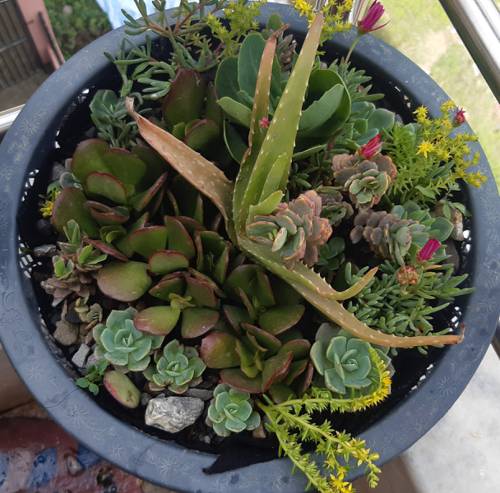
FAQ About Mental Health Benefits of Caring for Indoor Plants

How does caring for indoor plants help reduce stress?
Caring for indoor plants can help reduce stress by promoting relaxation and calmness. The process of tending to plants, such as watering, pruning, and repotting, encourages individuals to engage in peaceful and repetitive tasks. This focus on routine can limit exposure to stressful thoughts and redirect attention to the present moment, thus alleviating stress. Additionally, studies have shown that interaction with plants can lower blood pressure and promote relaxation, contributing to overall stress reduction.

Can indoor plants improve mindfulness?
Yes, caring for indoor plants can significantly improve mindfulness. It requires attention, presence, and an appreciation of the natural growth process. By focusing on the needs of the plants, such as specific lighting, water levels, and growth patterns, individuals practice being in the moment. This fosters a mindful mindset, encouraging self-awareness and a break from the fast-paced demands of daily life.

What emotional benefits can be derived from caring for houseplants?
Caring for houseplants can provide several emotional benefits. It instills a sense of responsibility and accomplishment as plants grow and thrive under one's care. This can boost self-esteem and create a sense of pride. Additionally, the nurturing process can have a soothing effect, alleviating feelings of loneliness and providing companionship. The greenery and natural aesthetics of indoor plants also contribute to a positive and calming atmosphere, enhancing emotional well-being.

Does having houseplants help with emotional regulation?
Yes, houseplants can play a role in emotional regulation by offering a calming presence and a visually pleasing environment. The act of caring for plants encourages groundedness and stability, helping individuals manage their emotions. Engaging with plants, whether through touch or observation, can calm the mind, reduce anxiety, and help people process emotions more effectively.

How do indoor plants contribute to a person's sense of daily purpose?
Indoor plants contribute to a person's sense of daily purpose by requiring regular care and attention. This creates a routine and responsibility that can be both motivating and rewarding. The consistent tasks associated with plant care, such as watering, checking soil conditions, and ensuring proper lighting, help structure the day and give individuals a sense of direction and fulfillment.

Are there any cognitive benefits associated with maintaining houseplants?
Maintaining houseplants can offer cognitive benefits such as improved concentration and focus. The attention required to care for plants can sharpen cognitive functions and enhance problem-solving skills, as individuals must assess and meet the needs of different plant species. Furthermore, the presence of plants in a workspace has been shown to improve attention spans and productivity, contributing positively to cognitive health.

Can caring for indoor plants improve mental health in people with anxiety?
Caring for indoor plants can positively impact mental health in people with anxiety by providing a calming and meditative activity that distracts from anxious thoughts. The act of nurturing plants encourages a slower pace and mindful interaction, which can reduce symptoms of anxiety. The physical presence of greenery also helps to create a tranquil environment, further aiding in anxiety reduction.

How does tending to houseplants influence mood and feelings of happiness?
Tending to houseplants can improve mood and feelings of happiness by creating a connection with nature, which is known to enhance overall well-being. The satisfaction derived from watching plants grow and thrive contributes to happiness and emotional satisfaction. Additionally, the greenery and vibrant colors of indoor plants are linked to improved mood and reduced feelings of depression.

Are there specific indoor plants known to improve mental well-being?
Certain indoor plants are particularly known for their ability to improve mental well-being. Plants like lavender, which is known for its calming scent, and aloe vera, which is easy to care for and purifies the air, are popular choices. Snake plants and peace lilies are also great for air quality and do not require much attention, making them ideal for creating a low-stress environment at home or in the office.

Is there scientific evidence supporting the mental health benefits of indoor plants?
Yes, there is scientific evidence supporting the mental health benefits of indoor plants. Research has demonstrated that incorporating indoor plants into living and working spaces can lead to improvements in mood, stress reduction, and even cognitive performance. Studies have shown that interacting with plants can reduce psychological and physiological stress, enhance attention span, and improve overall mental health.

Can taking care of indoor plants help with loneliness?
Yes, taking care of indoor plants can help with feelings of loneliness by providing a sense of companionship and interaction with a living thing. The nurturing aspect of plant care can satisfy the human need to care for another being, offering a feeling of purpose and connection. Additionally, plants can brighten a living space, making the environment feel more welcoming and less lonely.

How does indoor gardening compare to other mindfulness practices?
Indoor gardening is similar to other mindfulness practices as it requires focus, presence, and a connection with the moment. Like practices such as meditation and yoga, indoor gardening promotes relaxation and mindfulness by encouraging attention to the task and environment. However, it also provides a tangible outcome—the growth of plants—that can enhance feelings of accomplishment and motivation, potentially distinguishing it from other mindfulness exercises.

What physical activities are involved in caring for indoor plants?
Caring for indoor plants involves physical activities such as watering, pruning, repotting, and moving plants to optimal locations for light and temperature. These activities, though not overly strenuous, encourage physical movement and engagement with the environment. This can promote mild exercise and physical activity, contributing positively to one's physical health as well.

Can the presence of indoor plants affect sleep quality?
The presence of certain indoor plants can positively affect sleep quality by improving air quality and creating a calming environment. Plants like lavender and jasmine have scents that promote relaxation and may help reduce anxiety and improve sleep. Additionally, plants that release oxygen at night, such as snake plants and peace lilies, can improve air quality and contribute to a better sleep environment.

How does plant care fit into a daily self-care routine?
Plant care can be an integral part of a daily self-care routine by offering a structured and fulfilling activity that promotes mental and emotional well-being. Including plant care in daily habits provides a regular opportunity for mindfulness, relaxation, and a break from life's stresses. It aligns well with other self-care practices like meditation and journaling, offering both a mental retreat and a sense of accomplishment.

Are indoor plants beneficial for individuals with depression?
Indoor plants can be beneficial for individuals with depression by providing a sense of purpose and achievement. Caring for plants can foster a routine, instill pride in nurturing a living thing, and offer a calming influence. The aesthetic and liveliness plants bring to a home can also enhance mood and provide emotional comfort, contributing positively to mental health.

Do indoor plants require a lot of attention and knowledge to maintain?
While some indoor plants can be quite low-maintenance and easy to care for, others may require specific knowledge and attention. Plants like succulents, snake plants, and pothos are known for their resilience and tolerance to varying conditions, making them ideal for beginners. However, more specialized plants might need careful attention to lighting, watering, and temperature, making it essential to understand the specific needs of each plant variety.

What role do houseplants play in enhancing indoor environmental quality?
Houseplants can significantly enhance indoor environmental quality by improving air quality, reducing pollutants, and adding humidity to the air. Plants like spider plants, peace lilies, and ferns are particularly effective at removing pollutants and toxins from the air. By releasing oxygen and adding moisture, houseplants can create a fresher and more breathable living environment, contributing to better overall health and comfort.

Can indoor plants influence creativity and productivity?
Yes, indoor plants can positively influence creativity and productivity. A greener environment is known to stimulate the mind and inspire creative thinking. The presence of plants in workspaces has been associated with increased productivity, enhanced concentration, and the ability to focus better on tasks. The natural and aesthetic benefits of plants contribute to a more stimulating and pleasant working atmosphere.

Are there any psychological theories explaining the benefits of plant care?
Several psychological theories explain the benefits of plant care, including the Biophilia Hypothesis, which suggests humans have an innate connection to nature that supports well-being. Attention Restoration Theory posits that engagement with natural environments, like tending to plants, can improve cognitive function and help restore attention capacity. These theories underline the mental and emotional benefits of incorporating plant care into daily life.
